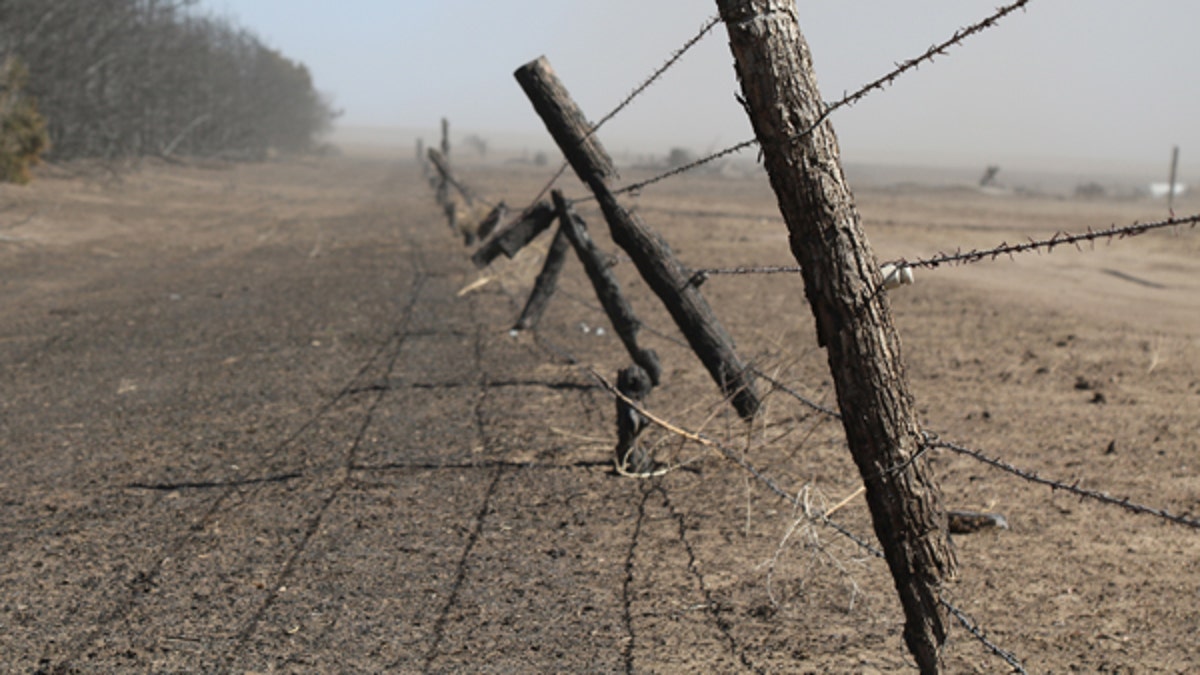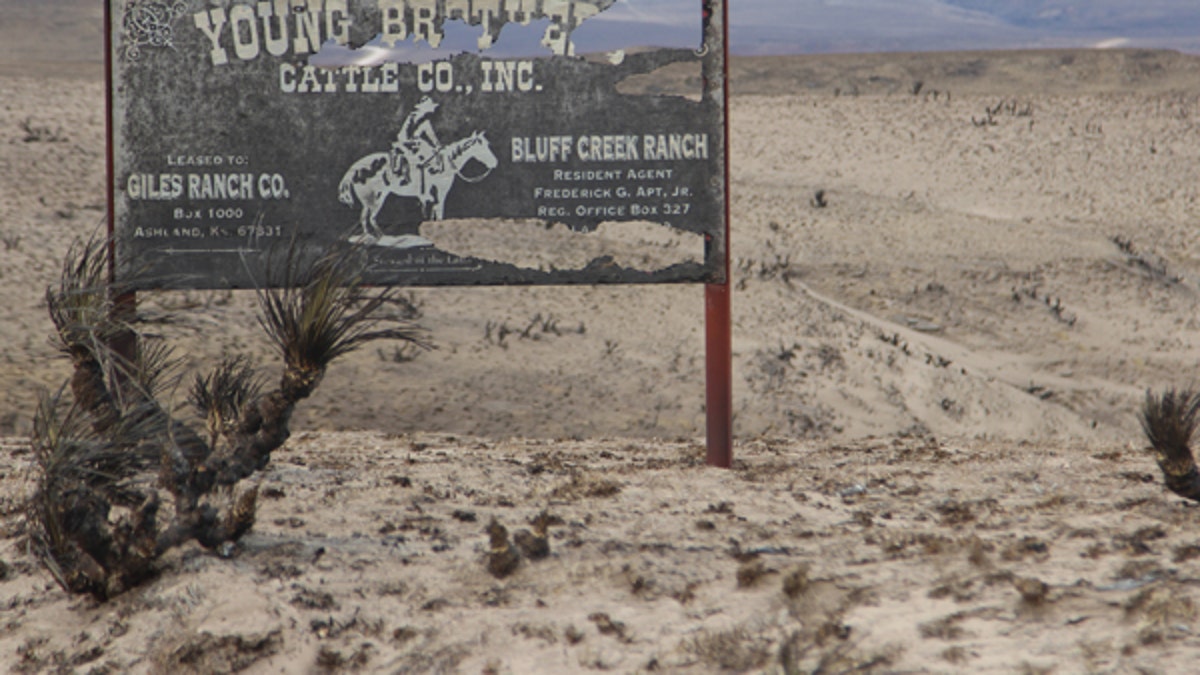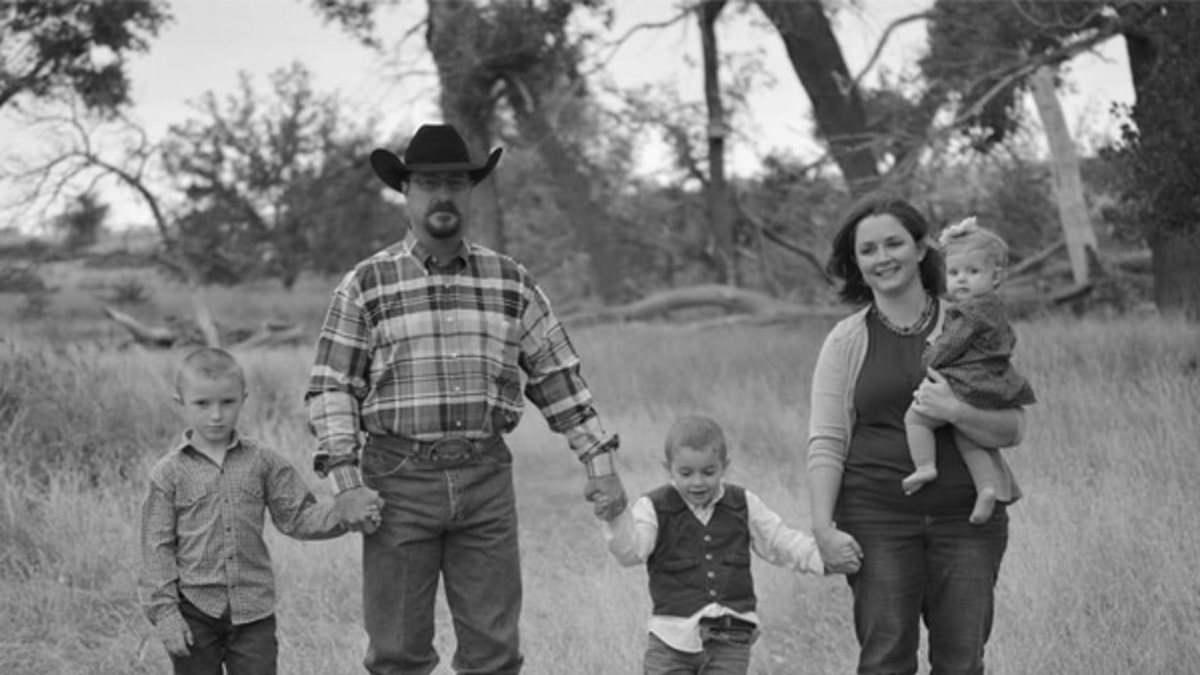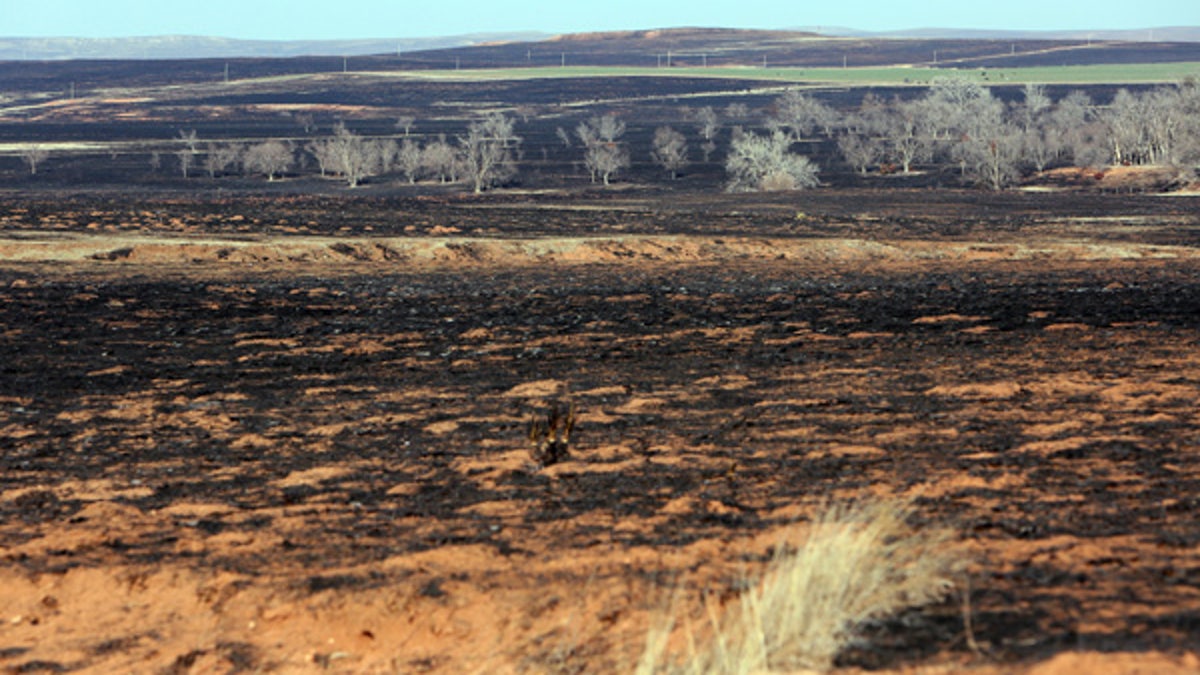
The largest wildfire in state history devastated the Clark County, Kansas, farmstead on March 6. (Kylene Scott/HPJ.com)
Kansas cattle rancher Jenny Giles-Betschart and her family have owned 30,000 acres in the southern part of the state since the 1940s, but earlier this month wildfires decimated most of that land.
“It burned everything,” Giles-Betschart tells FoxNews.com. “We don’t have anything left.”
The fires ripped across the Plains states, killing grazing animals, incinerating grasslands and destroying homes and barns. Kansas was particularly hard hit. In Clark County alone, where Giles-Betschart lives, 400,000 acres were burned, according to the Kansas Farm Bureau.
SC DEACON, WIFE, 2 CHILDREN KILLED IN HOUSE FIRE
The wildfires in Kansas were the largest in the state’s history, with more than 651,000 acres destroyed in total. Large overgrowth combined with a long stretch without rain plus high late-winter temperatures led to much of the terrain becoming a tinder box that quickly became uncontrollable.

Burned out sign on the Giles Ranch north of Ashland, Kansas, March 10. (Kylene Scott/HPJ.com)
“The fire has taken the lives of thousands of cattle, ruined thousands of miles of fence, decimated most of the pasture used for grazing, consumed much of the hay they use for supplemental feed, and destroyed a substantial number of homes,” Meagan Cramer, with the Kansas Farm Bureau, tells Fox News. “Rebuilding will take years, not months, and tens of millions of dollars to rebuild herds, fence and other infrastructure these ranchers rely on for income.”
TEXAS TRACK COACH, TRUCK DRIVER KILLED IN HIGHWAY CRASH
Not only was all the grass and hay on Giles-Betschart’s land singed to ash, but the family lost 1,000 cows and calves in the fire. Two and half weeks later, they are still putting down cattle that barely survived the blaze.

Jenny Giles-Betschart and her family during happier times on their family's cattle ranch. (Courtesy of Giles family)
“It was gruesome,” she said. “We spent four days putting down and burying animals. The toll on everyone was incredible.”
Besides the animals deaths and scorched land, her family also lost three houses and barely made it out alive.
“It was awful. We saw the fire in the distance around 2 p.m. that day,” she said. “The winds were really high and it just pushed the flames right towards us. Before we knew it, there was smoke everywhere.”
“The high wind speeds just fed the flames. It was the perfect storm.”
“We tried to free our cattle by cutting open fences for them to run free but with all the smoke they were confused and wound up running into the flames. We then had to get out of there. The fire was too strong. We split up but some of us didn’t make it out. My sister Katie was trapped, but she got to a wheat pasture [which is resistant to fire] to ride it out.”
The rancher says it was something that no one could have prepared for.
“The high wind speeds just fed the flames,” she said. “It was the perfect storm.”
For Giles-Betschart’s family, insurance will cover most of the damages to their ranch, but it won’t cover the vital fencing needed to keep their future herds on the property.

A burned landscape is visible for miles near Ashland, Kansas following wildfires that took place on March 6. (Kylene Scott/HPJ.com)
“We lost 100 miles of fence,” she said. “It costs about $10,000 per mile to fix. None of it is covered. We’ve been fortunate to have people from all over help to donate supplies and their time to help us rebuild.”
Cramer says that the outpouring of support to the state’s ranching community has been overwhelming.
“Ranchers are a resilient group, and they will overcome, but it won’t be easy,” she said. “It’s been heartwarming to see the generosity of people all over the United States who have sent hay, fence supplies and monetary donations.”
According to economists from the American Farm Bureau, it’s too soon to tell how much cattle has been lost.
“They are still putting together numbers of how much was lost,” Katelyn McCullock, economist for the American Farm Bureau, said to FoxNews.com. “Right now it has little effect on the consumer market, but the range losses are much higher in terms of livestock and hay.”
“There are some insurance programs that will help these ranchers get back to full operation, but that’s something that may take time.”





















